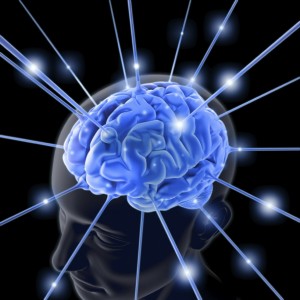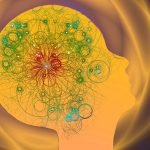Brain Aging, Estrogen, and the Critical Period Hypothesis
 The Experts Speak
The Experts Speak
Mark Swanson, ND with Barbara Sherwin, PhD, and Michael Craig, MD
The idea of a “critical period” (CP) is fairly old and well known. In general, a CP “is a limited time in which an event can occur, usually to result in some kind of transformation” (Wikipedia [http://en.wikipedia.org/wiki/Critical_period]). It applies to many academic fields and periods in history. In this expert interview, we focus on the CP hypothesis in the context of women’s healthcare relating to menopause, hormone therapy (HT), cognitive aging, and Alzheimer disease. Our distinguished panel discussion includes 2 of the world’s leading researchers on this subject. We welcome Michael Craig, MD, and Barbara Sherwin, PhD, to this new NDNR article format.
Panel Discussion
Dr Sherwin: I have a PhD in clinical psychology, and I do research in human psychoneuroendocrinology. I am a full professor in the Department of Psychology and full professor in the Department of OB/GYN at McGill University, Montreal, Canada, and I also hold a Canada Research Chair in hormones, brain, and cognition.
Dr Craig: I am a PhD and medical doctor who has qualified in both OB/GYN and psychiatry. I am currently appointed as a senior lecturer (associate professor) in reproductive psychiatry at the Institute of Psychiatry, King’s College London. In 2004, I was funded by the Medical Research Council (UK) to study the effects of ovarian hormones on memory using brain imaging techniques.
Can you define the critical period hypothesis and update us on the supportive data?
Dr Sherwin: The critical period hypothesis was formulated to explain why estrogen appeared to benefit certain aspects of cognition in women when administered around the time of menopause but did not improve aspects of cognition (or perhaps may even have caused harm) when treatment with estrogen was initiated in women above the age of 65 years [Sherwin1-3]. Studies from basic neuroscience have shown that older brains react differently to estrogen than young or middle-aged brains. This is still a viable hypothesis, and researchers are conducting further studies.
Dr Craig: In summary, if you give women who have been postmenopausal for many years estrogen therapy (ET) for the first time, this will have a neutral (if estrogen only) or even negative (if combined with progesterone) effect on the risk of developing Alzheimer’s disease (AD). It is still unclear, however, how long this critical period is or how long HRT [hormone therapy] should perhaps be prescribed for.
Briefly summarize the focus of your work contribution in this area of women’s health.
Dr Sherwin: We have carried out numerous randomized controlled trials and cross-sectional studies to investigate the effects of the sex hormones on several aspects of psychological functioning in women, including sexuality, mood, and cognitive functioning. For the past 20 years, we have focused our attention on estrogen and cognitive functioning in middle-aged and older women.
Dr Craig: The focus of the 2010 paper [Craig and Murphy4] was to summarize our current understanding of the effects of prescribing ET to postmenopausal women with respect to risk for developing Alzheimer’s disease. We also wanted to review some of the recent techniques that have been used by our group and others to study the effects of female hormones/HRT on the brain in order to understand how ET might modulate this risk. Collectively, the studies reviewed suggest that estrogen modulates the structure and function of the brain in regions that are involved in memory (and mood). This paper is a synthesis of our work and others in an area where there is still much confusion. It hopefully contributes by clarifying the meaning of earlier studies with respect to the risks and benefits of ET on risk for AD. It is also hoped that it provides a clearer understanding of some of the biological mechanisms that underpin these risks/benefits that have been found using modern in vivo brain imaging techniques.
How do the findings of the Women’s Health Initiative Memory Study (WHIMS) contribute to the current support for the critical period hypothesis?
Dr Sherwin: The WHIMS found that administering estrogen along with a synthetic progestin to 72-year-old women was associated with an increased risk of mild cognitive impairment and Alzheimer’s disease. On the other hand, the increased risk for these cognitive deficits did not occur following treatment with estrogen alone. Just as important perhaps was the finding that ET did not improve aspects of cognitive functioning in women aged an average of 72 years at the time of initiation of ET, as it did in earlier studies of 50-year-old women. Taken together, the WHIMS findings show that initiating ET in women over the age of 65 years does not benefit and may even harm cognitive functioning, especially if a progestin is coadministered.
Dr Craig: WHI/WHIMS contributed to the massive decline in the prescribing of ET to all women across the globe several years ago. However, the big problem with this study is that it failed to look at the effects of prescribing HRT to younger women in the period immediately post menopause. In fact, approximately 40% of women were prescribed ET at 70 to 74 years old and approximately 20% when they were older than 75 years old. This was a significant failure, as the majority of studies to date suggest that if you prescribe ET to women during this critical period shortly after menopause, then HRT appears to have a protective effect against cognitive decline and AD in later life.
Are there any limitations to the studies leading up to the CP?
Dr Sherwin: Most of the human studies that support the critical period hypothesis are cross-sectional in nature. There will probably never be an RCT [randomized clinical trial] undertaken to test the hypothesis because it would have to be a 30-year study, which would not be feasible. Therefore, it is important that future cross-sectional studies are very well controlled.
Dr Craig, you describe how the main in vivo techniques—neuroendocrine studies and several types of brain imaging studies—are used to evaluate estrogen’s actions via its neurobiological effects on brain structure and function in postmenopausal women. These helped form the basis for supporting the critical period hypothesis. Are there any shortcomings to these studies?
Dr Craig: Yes, the majority of these brain imaging studies are small, and they need to be replicated in larger studies. However, since WHI, funding for research into the effects of ET/female hormones on the brain has rapidly shrunk, and the probability of large (expensive) multicentered randomized brain imaging studies’ being funded in the next decade is slim.
Is preventing AD with ET age dependent during the CP?
Dr Craig: Age per se is essentially irrelevant. It is the age at which a woman reaches menopause that is critical. In most women on average, the menopause begins at 51 years old. The key point is that the critical period follows the point at which the ovaries stop producing significant levels of hormones. If you surgically remove a woman’s ovaries at 35 years old, the critical period will be around 35 years old, etc. Similarly, in women who have premature ovarian failure, it will also start earlier.
Does the critical period extend to include lower risks for heart disease, osteoporosis, and breast/ovarian cancer?
Dr Sherwin: The WHI found that estrogen therapy (ET) increased the risk of cardiovascular events when initiated in older women but not in women between the ages of 50 to 59 years. I am not aware of any research findings on osteoporosis or breast cancer with regard to the critical period hypothesis.
Estrogen therapy after age 60 to 65 might also increase AD risk. Why?
Dr Craig: The Cache County Study suggests that as long as women over 65 started ET during the critical period, then ET is likely to remain protective against AD. It is still less clear whether or not woman should stop taking ET after the critical period.
Dr Sherwin, what is the neuromechanism of ET given to older postmenopausal women causing an increased risk of cognitive aging?
Dr Sherwin: Whereas E [estrogen] increases the number of dendritic spines on neurons in the CA1 area of the hippocampus (which enhances memory) in young and middle-aged rats, this beneficial effect fails to occur when E is given to ovariectomized (OVX) aged rats (Adams et al5). This suggests that E-induced morphological brain plasticity is age dependent and is attenuated in aged rats compared to young animals. Moreover, a delay in initiation of ET following OVX in rats resulted in a significantly reduced synaptic density in the CA1 area of the hippocampus compared to animals treated immediately after their ovaries were surgically removed (Silva-Gomez et al6). This suggests that initiating ET as close in time to the menopause may provide optimal benefits with regard to its neuroprotective effects. Moreover, it has been found that the ability of E to enhance basal forebrain cholinergic function also declines with age (Gibbs7), so that older animals do not benefit from the E-induced increase in acetylcholine, a neurotransmitter that is important for memory.
The “verbal memory” score has been the benchmark for evaluating the effects on cognitive memory in CP studies. Why aren’t other evaluation markers mentioned as much?
Dr Sherwin: I suppose that function in other cognitive domains is not mentioned as frequently because significant change in performance rarely occurs in tests of other cognitive skills in women receiving ET.
Dr Craig: The main reason that verbal memory is used as the benchmark for follow-up studies is that it is very sensitive to early cognitive decline.
Would you agree we don’t know how or if natural progesterone fits into the critical period hypothesis at this time?
Dr Sherwin: Yes, I know of no studies on natural progesterone and cognition. I would also wonder about the rationale for treating postmenopausal women with unopposed progesterone, especially since it has been shown that progesterone attenuates the beneficial effects of estrogen on some brain functions.
The reevaluation of the WHI study found that unopposed estrogen therapy is not linked to breast cancer risk. In my practice, I recommend that most women patients entering menopause begin ET with bioidentical HRT, even if they do not have any menopause symptoms.
Dr Sherwin: I believe that practice guidelines published by both NAMS [North American Menopause Society] and ACOG [American College of Obstetricians and Gynecologists] recommend that ET be prescribed only for symptomatic postmenopausal women for the shortest period of time possible. In general, the gynecologists with whom I work use brand-name drugs and not bioidentical hormones, where the dosing may not be reliable.
What would be the long-term health impact on the incidence of severe cognitive impairment in older people, estimated to be 20% to 30%, if every physician adopted the critical period as guidelines for ET? Would this also extend to bioidentical hormones?
Dr Craig: One can only speculate at this point on the long-term impact of every physician adopting the critical period “guidelines,” but it could be significant. The same may also be true for bioidentical estrogen and natural progesterone, but we simply do not know. As noted in the paper, “…it has been calculated that if a treatment could reduce severe cognitive impairment in older people by 1% per year, this would cancel out the estimated increases in the long-term healthcare costs.…”4
Thanks for sharing your work, expertise, and insights on this important and evolving topic in women’s healthcare.
Dr Swanson’s Comments
The CP hypothesis outlines a narrow “window of opportunity” for the prevention of dementia and cognitive aging 15 to 20 years later. It sounds quite simple actually: as soon as estrogen production stops, start it, then stop after a few years, and hope the memory banks will remain fully charged. I wonder if this would also be true for men starting testosterone at andropause? There were other questions that remained on the table. Not unexpected, there was not any leaning toward the use of bioidentical HT during the CP because of “lack of data.” Also left to ponder were the effects of progestins vs progesterone, estrogen delivery methods and dosage forms, phytoestrogens, dehydroepiandrosterone, melatonin, and patient profiles such as estrogen dominance, insulin resistance, and obesity. The precise onset of the CP and timing for HT is still being investigated. The NAMS has taken a position against prescribing ET at any age based on the CP/cognitive aging data. In my practice, I prefer to include the CP data in my HT decision making. I usually begin with low-dose bioidentical HT starting at the earliest onset of perimenopause or at early menopause. The CP is clearly not about using unopposed natural progesterone as an “estrogen alternative,” as is often advocated. This may block the CP cognitive opportunity entirely. All in all, this was an informative and enlightening interview.
 Mark Swanson, ND, writes “The Expert Report” column, which is featured in NDNR. Dr. Swanson has over 25 years experience as chief medical advisor, research and technical consultant, and products formulations expert to leading practitioner brand supplement manufacturers. He is a former associate editor for the American Journal of Naturopathic Medicine, national product director, and published researcher. He is a pioneer graduate of Bastyr University, 1984. Dr. Swanson has his private practice specializing in Preventics Care and Functional Medicine, in Sequim, Washington. Contact: [email protected]
Mark Swanson, ND, writes “The Expert Report” column, which is featured in NDNR. Dr. Swanson has over 25 years experience as chief medical advisor, research and technical consultant, and products formulations expert to leading practitioner brand supplement manufacturers. He is a former associate editor for the American Journal of Naturopathic Medicine, national product director, and published researcher. He is a pioneer graduate of Bastyr University, 1984. Dr. Swanson has his private practice specializing in Preventics Care and Functional Medicine, in Sequim, Washington. Contact: [email protected]
References
1. Sherwin BB. The neuroprotective effect of estrogen in women: is timing of the initiation of treatment critical? Nat Rev Endocrinol. 2009;5:620-627.
2. Sherwin BB. Henry JF. Brain aging modulates the neuroprotective effects of estrogen on selective aspects of cognition in women: a critical review. Front Neuroendocrinol. 2008;29(1):88-113.
3. Sherwin BB. Does estrogen protect against cognitive aging in women? Curr Dir Psychol Sci. 2007;16(7):275-279.
4. Craig MC, Murphy DG. Estrogen therapy and Alzheimer’s dementia. Ann N Y Acad Sci. 2010;1205:245-253.
5. Adams MM, Smith TD, Moga D, et al. Hippocampal dependent learning ability correlated with N-methyl-d-aspartate (NMDA) receptor levels in CA3 neurons of young and aged rats. J Comp Neurol. 2001;432:230-243.
6. Silva-Gomez AB, Rojas D, Juarez I, Flores G. Decreased dendritic spine density on prefrontal cortical and hippocampal pyramidal neurons in postweaning social isolation rats. Brain Res. 2003;983:128-136.
7. Gibbs RB. Long-term treatment with estrogen and progesterone enhances acquisition of a spatial memory task by ovariectomized aged rats. Neurobiol Aging. 2000;21:107-116.









